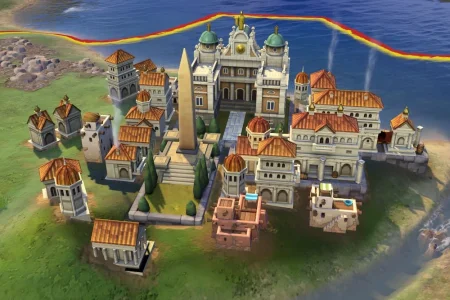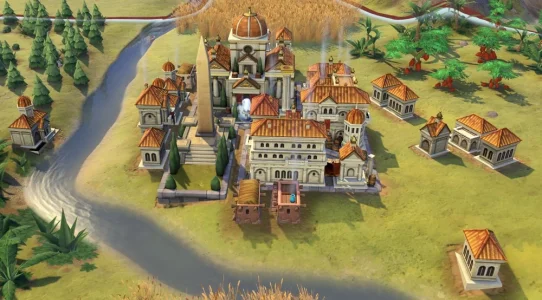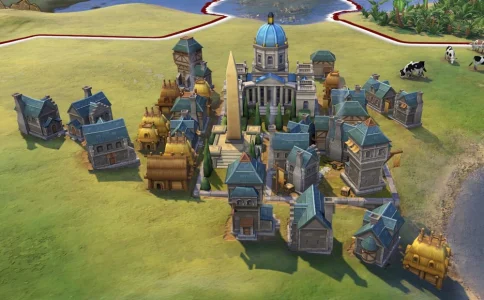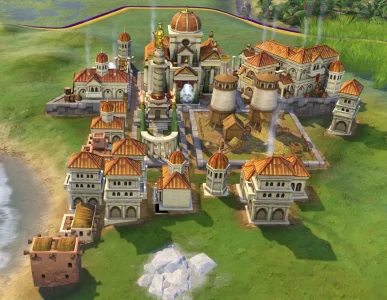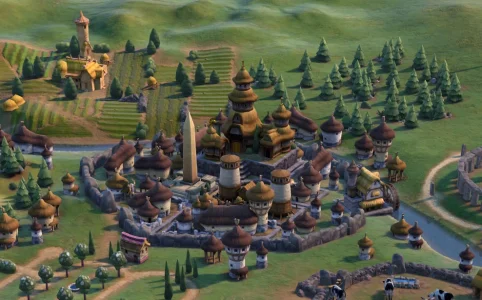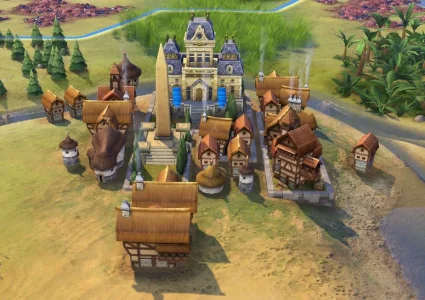It is certainly true - see the attached gallery. The palaces/city centers were different, it added a unique flavor for the civ. That has now been erased. YOU MUST play as a civilization with a historical anchoring in that age (unless Firaxis is trying to fill ages in and uses the Maya in antiquity, etc.) and ONLY that age. The only thing to remind you of who you once were are the city names and the unique buildings in your cities (note that you can only build them in your cities, so it is entirely possible to play a game where there is no hint that you played as Rome in the antiquity age outside of 1-2 unique quarters across your 30 settlements). That is not what CIV has been for the last 30 years and is a major gameplay change.
Brother I have a JD and LLM, I do not base my knowledge of history on what the Civ games did. Unless you are going to have 300+ civilizations across the 3 eras - Civ switching is an inferior historical analog than keeping the "cartoonish" singular civs and allowing their units and architecture to develop and evolve based on who is living in the area the civ represents for the appropriate time period. It is preferable for me, and for a great deal of the player base, to have the Roman civilization gradually morph into a civilization artistically depicted as a modern European/Mediterranean civilization while retaining the key design elements that made them Roman (free roads and trading posts in Civ VI, even into the modern age).
You did not engage in my critique. I have also played numerous Carthage > Spain games. I agree that they are fun. That is not my point. If I transition to Spain or the Abbasids or anyone else in the Exploration age, I can no longer continue to make my civilization feel like Carthage. No Punic Ports, no double merchants, no double colonists. In other words - nothing really Carthaginian. Again compare with every civ game since unique infrastructure was introduced in Civ IV, over 20 years ago. That is a material loss and you are unable to play around that by cosplaying Spain as Carthage by not building any Plazas or Conquistadors. Likewise, and even more frustratingly, I cannot play as the Inca or the Abbasids from antiquity, which makes them feel like a shell of themselves in the exploration era, given that the civs of the anitquity age do not share the same terrain or geographical starting biases.
You may enjoy the civ switching because you like that each age is a minigame with civilizations locked to that age in a sort of "time-appropriate" historical simulator. (I can't fight the Mayans with the Spanish, but I can fight the Hawaiians with the Chola). That's fine. I too enjoy the individual ages with their unique mechanics. But that does not detract from the very real gameplay negatives which occur as a result of the civ-switching mechanic; it is fundamentally not a Civilization game.
More broadly, you seem to think that previous Civs just slapped a label on an incongruous ahistorical ethnic blob and called it a "Civ," so you can't comprehend why people are annoyed that you are now forced to change those labels. To that I pose the following hypothetical - do you think that Civ VII would be as popular if the devs had decided to do away with Civilizations all together and just had randomly named factions? I suggest the answer to that question is no, because people enjoy the historical role playing element of playing a real civs with real uniques and real(ish) leaders. Consequently, it stands to reason that people opposed being forced to switch from the Romans, an italo-ethnic group which created an Empire, to the Normans, a Nordic-Frankish admixture inhabiting an extremely small overlap of territory and almost no ethnic overlap (aside from the American generalization of "they were both White"), do not oppose this on both an emotional ground: Civilizations do not just randomly morph into other distinguishable groups if people and the Romans and Normans are as distinct of a people - ethnically, culturally, geographically, and Romans and the Kushites. This is unsatisfying emotionally, because Romans really did not share much if any cultural ties to the nordic raiders of the early medieval period, and logically, because there is little to no reasoning behind forcing the player to switch to these unrelated civs, except to enforce the broader framework of Civ VII's ages system - something Civilization managed just fine without for 3 decades.

